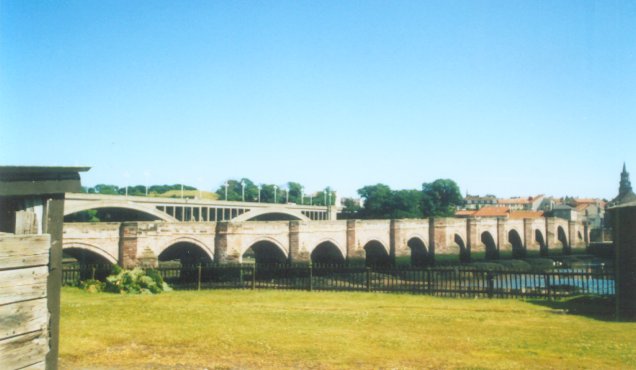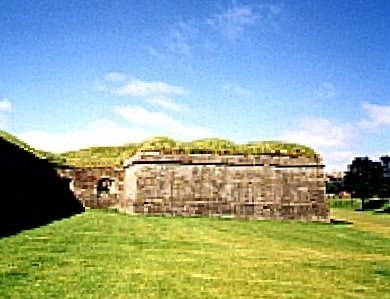BORDER TOWNS
Berwick-upon-Tweed
Pronounced Berrick
Berwick is a town of great historical interest situated on the north bank at the mouth of the River Tweed yet is in England.
Because of its strategic position Berwick was probably the most fought over town in the whole of the Borders, changing hands no less than 14 times between the 12th and the 13th centuries. Its allegiance was finally resolved by the English recapture of the town in 1482.
From 1836 Berwick-upon-Tweed was a county in its own right and only became part of Northumberland in 1974.
Berwick is a town of conflicts.
-
The River Tweed forms part of the boundary between Scotland and England. Berwick stands on the north bank of the river, the Scottish side, yet it is in England.
-
Berwick is the obvious county town of Berwickshire, in Scotland, yet it is in England and part of Northumberland.
-
Scots law applies to the fishing rights of the Tweed which, at that point, passes Berwick with English territory on either bank. The fishing laws extends to 4 miles into the North Sea, yet beyond 3 miles is in international waters.
-
Although Berwick is in England it is in the Scottish Football League and all its fixtures are with Scottish teams.
-
In its history as a border town is has changed allegiances 13 times.
There is a widespread belief that Berwick is still at war with Russia because Berwick wasn't included by name in the peace agreement at the end of the Crimean War. It is true that Berwick had for some time been a free town but before the Crimean War it was created an English county and as such would not have been specifically named in the peace treaty and so Berwick is not at war with Russia.

ofOne of three bridges crossing the River Tweed at Berwick.
Berwick Barracks
The 18th century Barracks are impressive buildings enclosing huge barrack squares. They were the first purpose made barracks to be built now houses an extensive museum with art collections and exhibitions.
The Ramparts
Calais had been lost to the French and the presence of French troops in Scotland was of grave concern to the English. A French attack was feared and there was much apprehension at the time.
Queen Elizabeth I ordered the construction of a huge complex of fortifications to strengthen the existing defences. With the advent of cannon power the castle and walls on which Berwick had a relied upon were obsolete. It took eleven years to complete the work on the ramparts and they have never been used in war.

There is unrestricted public access to the ramparts.
Around and about Berwick
Eyemouth